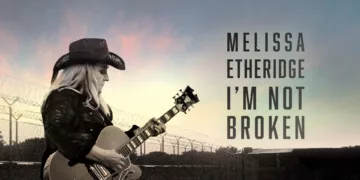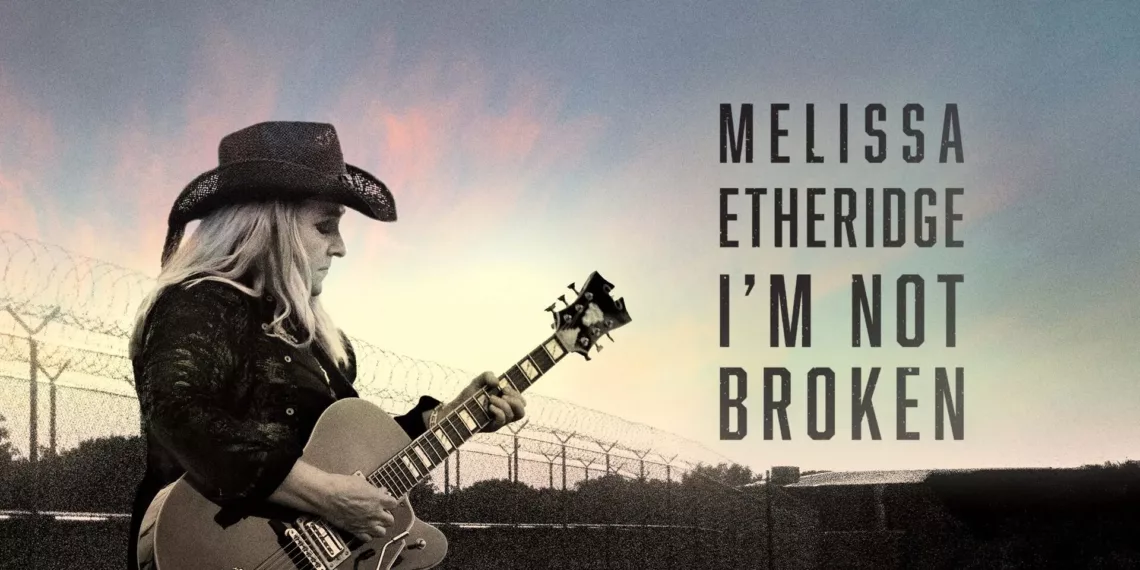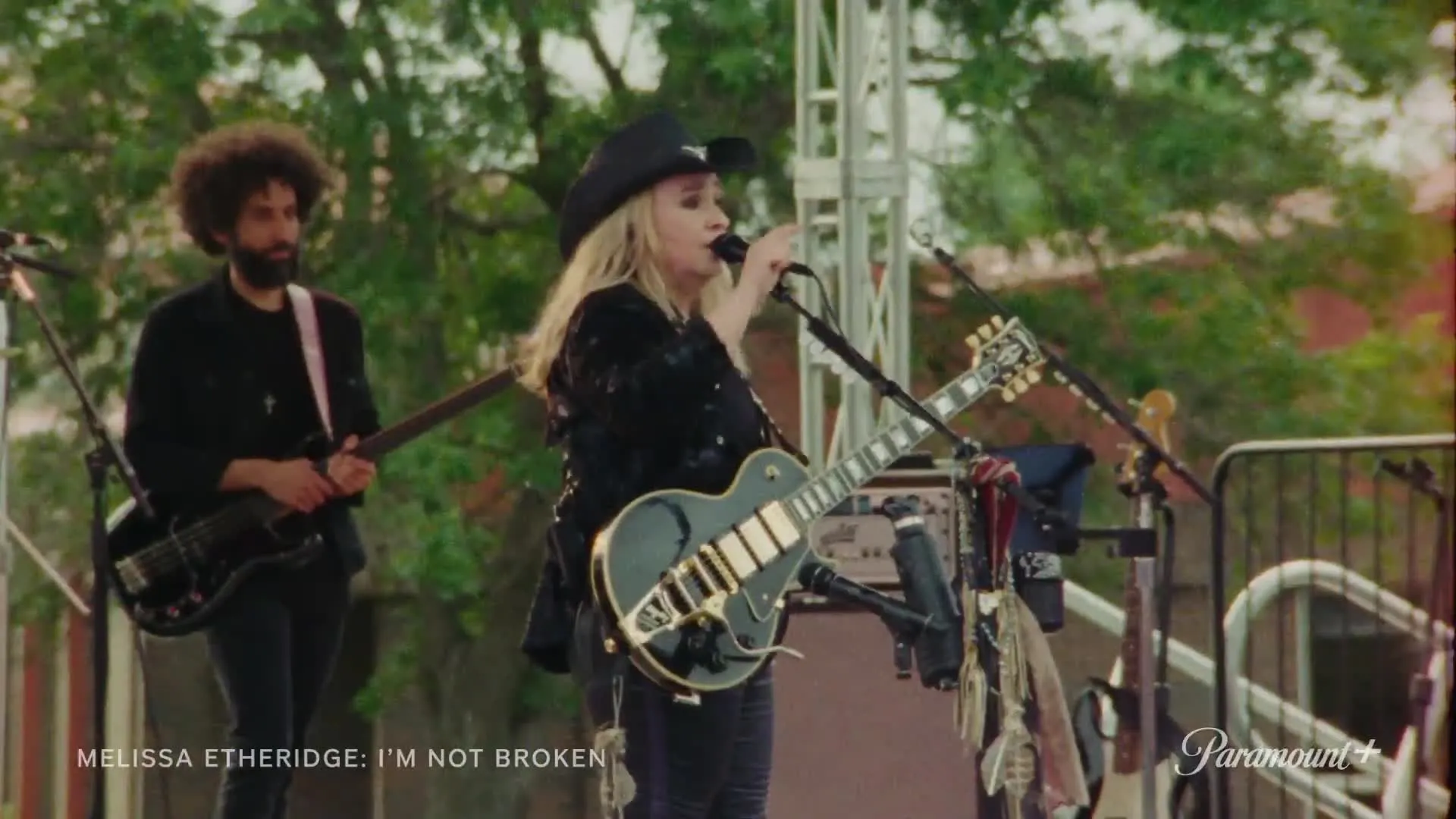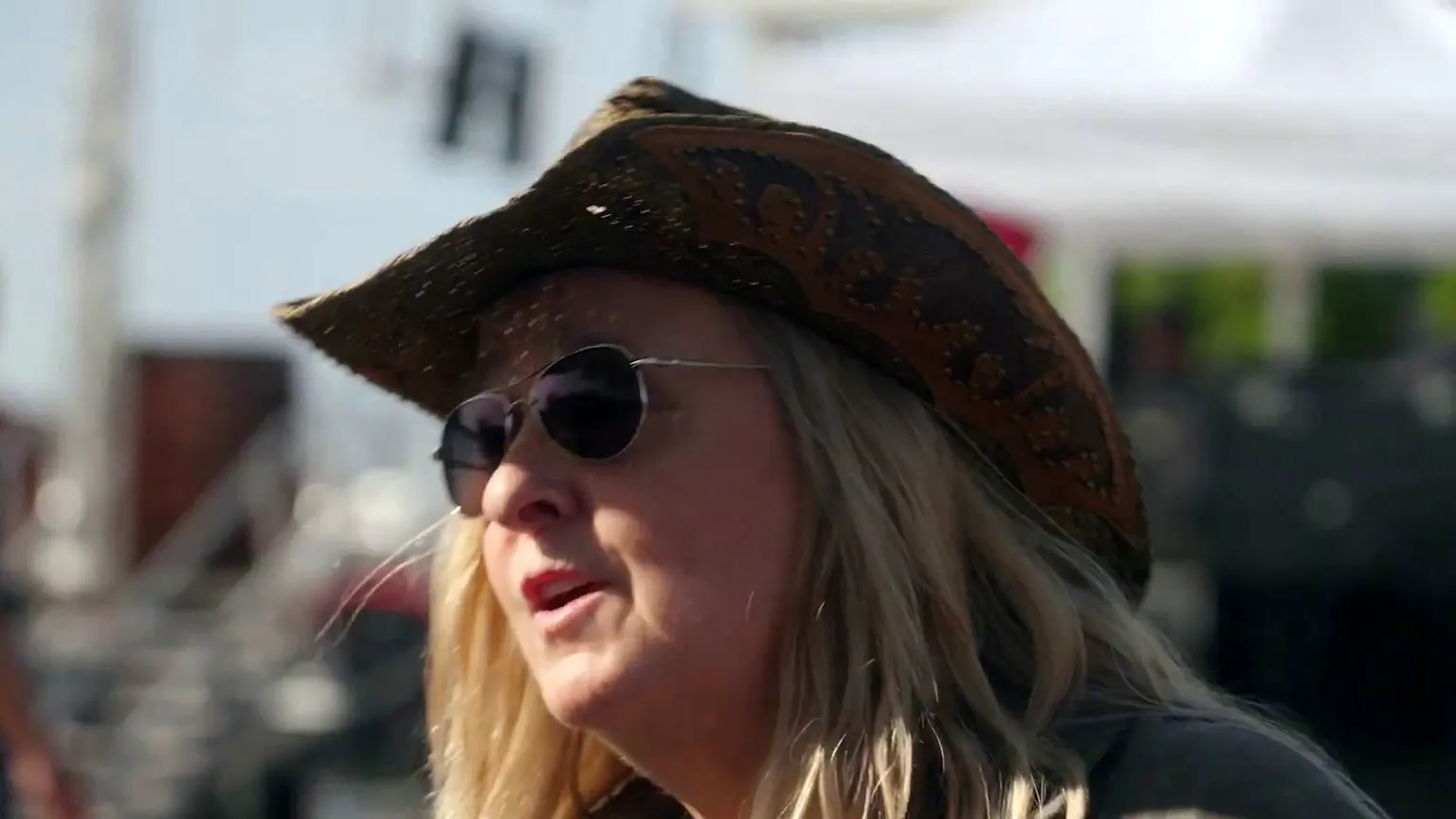Melissa Etheridge is a Grammy award-winning singer-songwriter known for her emotionally powerful rock songs and years of advocacy. When the opportunity arose to perform for incarcerated women in Kansas, Etheridge saw potential for healing through music and shared experiences.
The moving documentary Melissa Etheridge: I’m Not Broken follows this concert’s journey, from months of correspondence between Etheridge and five inmates to the prison performance itself.
It explores themes of addiction, the challenges of the justice system, and finding redemption. Streaming now on Paramount+, the series gives viewers an intimate look into these women’s lives and the transformative power of human connection.
Both inspiring and thought-provoking, I’m Not Broken is well worth experiencing for anyone interested in compelling documentaries.
Finding Common Ground
Growing up just outside the prison town of Leavenworth gave Melissa Etheridge a unique perspective. As a young folk singer, her first concerts were performed for inmates, who embraced her like “a female Johnny Cash.”
The connection clearly made an impact. So when the opportunity to play for incarcerated women in Topeka arose, Etheridge saw potential for understanding through shared lived experiences.
Having lost her own son to opioids, Etheridge understood addiction’s devastation all too well. Through months of letter correspondence, the struggling woman’s stories resonated with her own grief. Their words of hardship and hope inspired new songwriting crafted to lift their spirits.
As Etheridge delved into the histories that led each woman to prison, she recognized cycles of trauma, neglect, and substance abuse all too familiar in America’s complex issues. Though separated by walls and circumstances, in finding common ground, the singer hoped to reassure them with music and fellowship. Both her son’s memory and their tales of resilience would fuel Etheridge to bring light to those often forgotten.
In exposing her own vulnerability, Etheridge aimed to empower the inmates through compassion. By addressing loss and redemption themes her tough-as-nails rocksongs embodied, the documented prison show promised catharsis through unity in shared pains overcome. Their voices uplifting hers in return, together music’s healing proved stronger than any barrier between.
Their Stories, Her Song
Five residents of Topeka Correctional Facility found solace in sharing their stories with Melissa Etheridge. Each woman’s journey was complex, yet the singer recognized reflections of her own struggles in their words.
Leigh, sentenced to 15 years, began using drugs as an escape from an abusive home life. Poverty and neglect followed Kristi into addiction. Her 10-year term stems from related crimes.
From a young age, Cierra turned to substances to numb the pain of trauma. Now serving 20 years, she saw writing as catharsis and a chance to understand her destructive patterns.
Familial loss led Jessica to coping mechanisms with lasting consequences. 8 years in, her letter brought calm in disclosure.
Andrea’s childhood robbed her of stability. Self-medicating became a 14-year cycle ending in felonies.
Opening up about past decisions lifted burdens, as one inmate shared. Etheridge empathized through her late son’s addiction battle. Resonating with the struggling women through shared hopes and experiences, she crafted for them “Burning Woman,” a song evoking their resilience in rising above life’s hardships.
Though separated by circumstance, in heart these inmates and artists connected. Their courage moved Etheridge to give voice to their truths through music. For in each other, beyond prison paints and pain’s long shadow, they found kindred spirits of survival.
A Show of Connections
Surrounded by barbed wire within the prison’s outdoor venue, Melissa Etheridge’s all-black attire popped against the backdrop. With Les Paul in hand, she was ready to rock this discerning crowd. Kicking off with 1993’s “I’m the Only One,” her tone rang boldly through the space.
Faces soon lit up with the tune’s familiar lyrics. Though confined, these women knew Etheridge’s catalog well. Her vocals filled the air with a shared energy and understanding—proof that music recognizes no boundaries. Between songs, she casually conversed with the cheering congregants.
The new number crafted for this visit brought both musicians and inmates fully present in the performance. Etheridge poured her soul into the emotional ballad inspired by the residents’ letters. As those powerful words resonated, tears appeared where before there were only smiles. A meaningful release had been achieved.
But the deepest connection came when Etheridge vulnerably recounted her late son. Through watery eyes, she bravely played the rarely aired tribute. The response was overwhelming—a sea of handwritten hearts held high in loving solidarity. In that moment, the therapeutic power of live music was on full display. Both artist and audience emerged uplifted and seen.
Room for Reform
Navigating the justice system brings unique hurdles for women. At Topeka, an administrator acknowledged females tend to prioritize relationships, leaving them vulnerable to exploitative partners. Such nuanced understandings were refreshing among the prison’s aims of turning trauma into triumph through therapeutic programs.
Unfortunately, success depends on funding that’s often diverted to contractors like Centurion, criticized for neglecting medical welfare. Just last year, inmates alleged dangerous neglect under Aramark’s supervision too. While reform remains work in progress, it’s encouraging to hear leadership discuss treatment over punishment.
Positive steps were seen through memories. One woman found purpose through education behind bars. The mayor credited his rehabilitation to similar resources. Still, with 6.5 times more Americans incarcerated today than in 1980—despite stable crime rates—it’s clear many nonviolent drug offenses would be better solved in communities, not cells.
Etheridge attests to alternative treatment’s benefits through her advocacy too. Her foundation assists those drowning in addiction. Doubling down on healthcare versus contractors could better rehabilitate many instead of ostracizing them, as the series implies. Though change happens gradually, artists like Etheridge illuminating real issues fosters more compassionate understanding and solutions. With open dialogue, perhaps one day uniquely female challenges may truly be addressed.
A Spark of Understanding
By unveiling the humanity in those society often forgets, Melissa Etheridge: I’m Not Broken fosters the empathy we all need more of. In sharing five incarcerated women’s stories, the documentary introduces individuals, not just inmates—people whose resilience inspires.
Etheridge proves no less inspired by them, continuing drug reform advocacy through her foundation. Lending voice to their experiences in “Burning Woman,” she ensures these lives still shaping hers will also empower others facing life’s hardship.
The concert album captures rapt audience approval of Etheridge’s anthem. But it is the screen project sparking conversations around tragedy, trauma, and humanization that could spark real change. Viewers wishing to support more treatment than punishment now have a compassionate entry point, thanks to this moving exhibition of music’s power to connect and heal.
By bringing such issues to light, partners in positive reform like Etheridge give hope that one day, alternative solutions may truly predominate over punitive ones that often do more harm. Until then, projects proving even the most marginalized among us—and their resiliency—still deserve to be seen and heard can help carry society toward brighter tomorrows.
A Note of Hope
Melissa Etheridge: I’m Not Broken shines a necessary light on issues often shrouded in stigma and misconceptions. In doing so, the singer and her partners directing this film take an important step toward greater understanding.
By unveiling common hopes, pains, and triumphs shared between Etheridge and those locked away, perhaps some preconceived notions will soften. While reforms to complicated problems are works in progress, seeding empathy through art can bear fruit toward justice.
This documentary powerfully reminds us that beyond any single event is a full human story. Even in society’s darkest corners, resilience and compassion prevail. Its messages of finding light in each other’s eyes resonate well after credits roll.
For anyone seeking insight delivered with raw sincerity, I’m Not Broken is not to be missed. Both uplifting entertainments and keys to unlocking compassion, films like this one leave hope the stories they share may nudge society’s direction, however subtly, toward freedom and care for all people.
The Review
Melissa Etheridge: I'm Not Broken
Melissa Etheridge: I'm Not Broken proves that music and the human connections it enables can triumph over even the highest of barriers. With empathy, courage, and artistic flair, this documentary touches hearts by revealing shared hopes in each of our diverse lives. It deserves wide viewership for shinning light on pressing issues with redemptive clarity.
PROS
- Powerful illustration of music's healing ability
- Inspirational stories of resilience from featured inmates
- Personal insights from Etheridge into addiction and grief
- Thorough exploration of challenges within the justice system
- Calls needed attention to reform through spotlighting real women's livesCould expand more on alternatives to incarceration
CONS
- Could expand more on alternatives to incarceration
- A brief look at specific facilities's challenges
- Minimal context on backgrounds of key inmates





















































